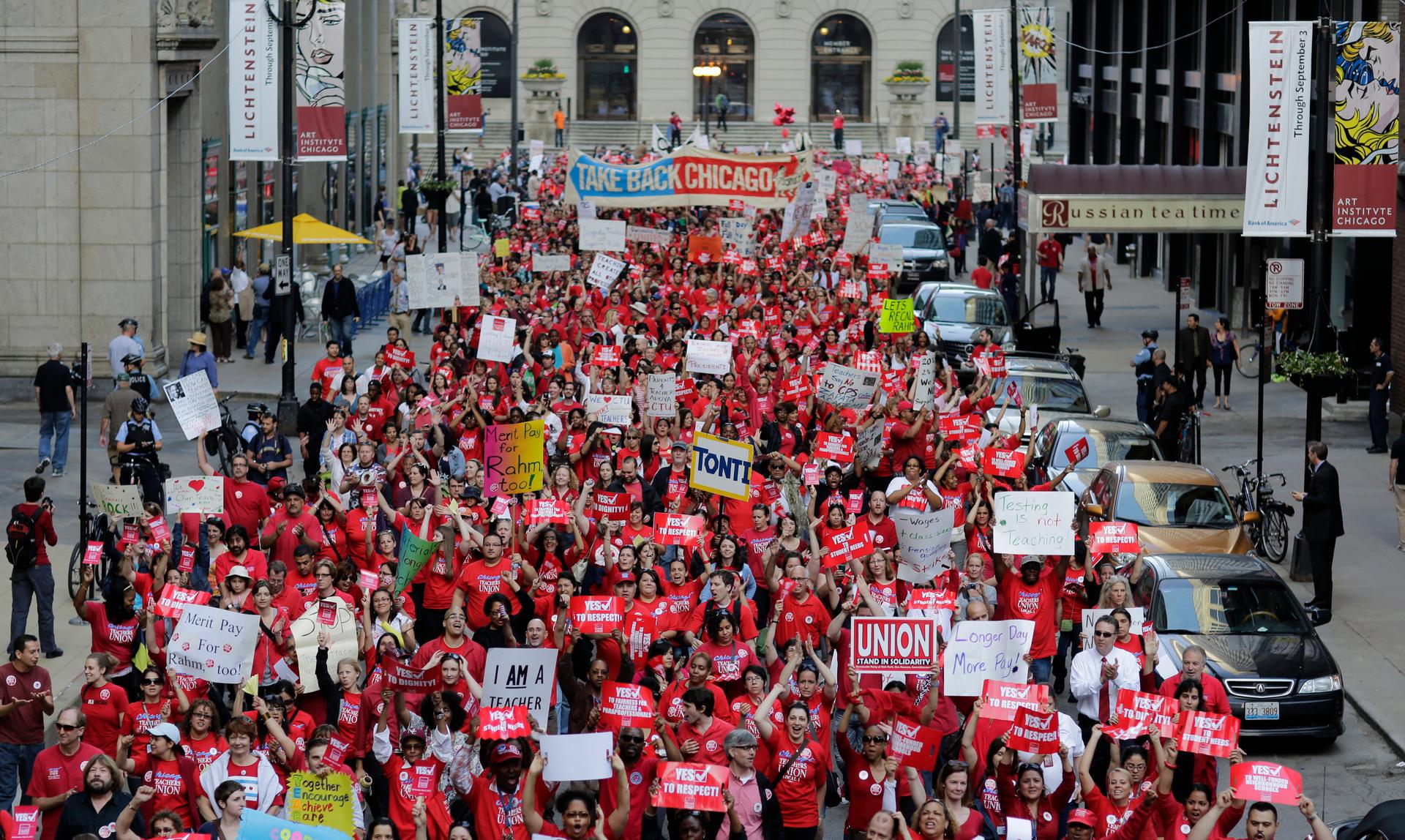Thousands of Chicago school kids out of class as teachers go on strike
Thousands of Chicago Public School teachers march to the Board of Education’s headquarters during a protest in Chicago, May 23, 2012. Teachers say they are upset with contract talks. (Photo by John Gress/Reuters.)
Chicago’s public school teachers are on strike — after the school district’s leaders and teachers’ negotiators failed to reach an agreement Sunday night.
Negotiations have resumed, but some 350,000 school children are currently out of school — with parents, grandparents, churches and community centers scrambling to find places for them so they stay out of trouble. Meanwhile, teachers have erected picket lines around schools and district office buildings as they demand better pay, greater job security and revisions to a previously agreed-upon teacher evaluation system.
Becky Vevea, an education reporter for Chicago Public Radio, said outside one school, Blaine on Chicago’s north side, she saw 40 to 50 staff members wearing red and holding strike signs.
“They sang a few chants — solidarity forever,” she said. “There are more than 600 schools where similar scenes are taking place.”
Teachers in the city’s charter school, which serve about 52,000 students, aren’t on strike because they aren’t unionized.
About 144 Chicago schools are open for a half-day, with non-teachers supervising activities. They’ll also provide meals for students — not insignificant because a majority of the district’s students qualify for free or reduced price breakfast and lunch.
Chicago Mayor Rahm Emmanuel was elected amid promises to be tougher on the teachers’ unions. His relationship with the teachers’ union is strained — at best. But he insists this strike wasn’t necessary, and the two sides were close or in agreement on all but two issues, according to the Chicago Tribune, the teacher evaluation system and principals’ ability to terminate under-performing teachers. Teachers’ leaders say there’s more to it than that, but agreed that pay was not a primary factor.
“I’ve got enough challenges. I wasn’t looking for another challenge,” Emanuel said to the Tribune.
Legislation that was passed in Illinois last year limited what the teachers’ union can bargain over, Vevea said. She said despite both the union leadership and Emanuel being focused on concrete ways of improving the schools, the two sides have a very adversarial relationship.
George Drase, a Chicago teacher on the picket line, said he lamented that teachers were out of the classroom, but insisted it was necessary.
“For those who have been here 20 years, not being is school is easier. But for the younger teachers, it’s a lot harder. They don’t know what to expect,” he said to the Tribune. “I sat down with them last year and crunched the numbers. I said what they were offering us, then, was like working on Saturday for free. They realized what that meant.”
Every day, reporters and producers at The World are hard at work bringing you human-centered news from across the globe. But we can’t do it without you. We need your support to ensure we can continue this work for another year.
Make a gift today, and you’ll help us unlock a matching gift of $67,000!
